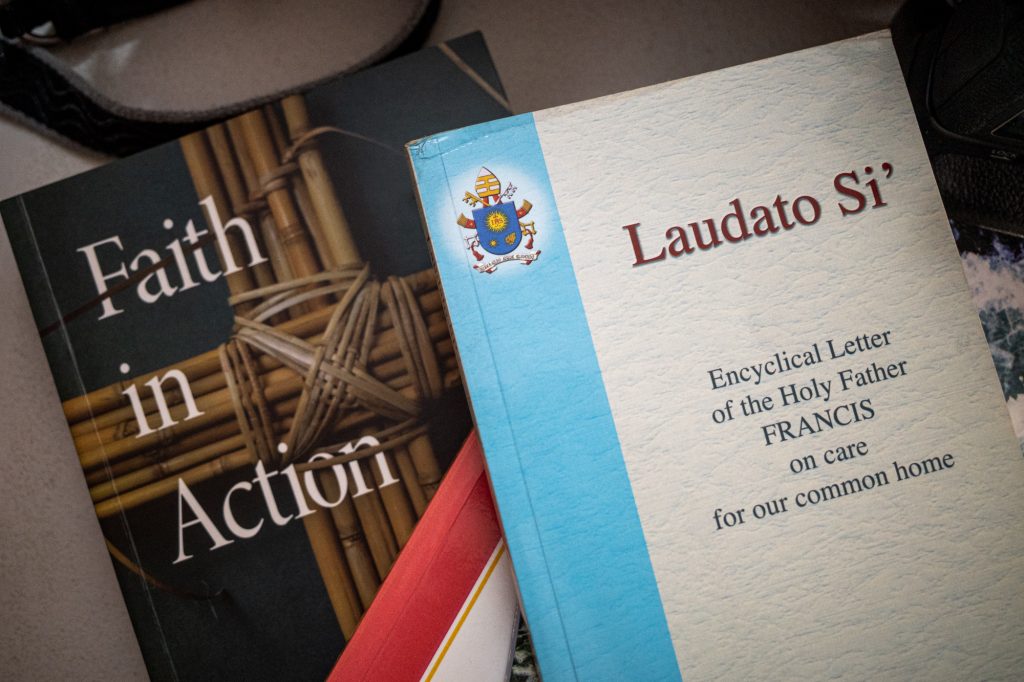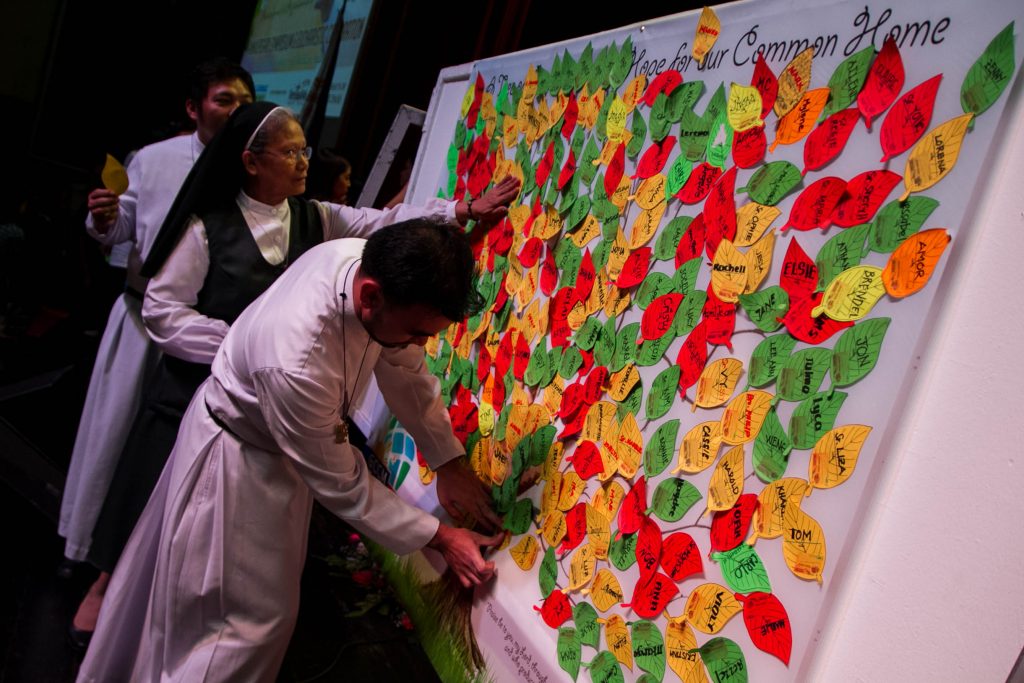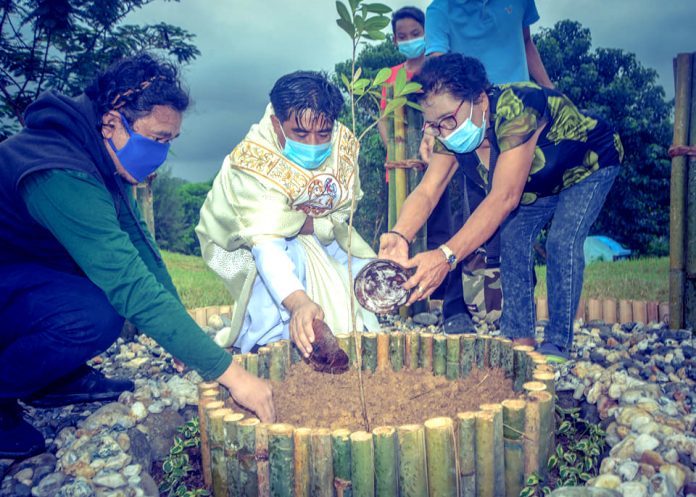The election of Pope Francis in 2013 promised a new era for the global Catholic community. Inspired by the patron saint of animals and the environment, the head of one of the biggest religious denominations in the world sought to change the role of faith in addressing the ecological crisis.
Ten years into his term, he has made an indelible mark on the Roman Catholic Church’s perspective and approaches to tackling environmental issues.
By highlighting the ecological lens in his reflections and statements, he has not only made problems deemed as too technical or irrelevant more relatable, but also made the institution itself more approachable to billions worldwide.
At the global level
While previous popes have issued statements and letters on environmental protection and social justice, Pope Francis is the first leader of the Catholic Church to strongly recognize the deteriorating state of the planet and call for transformative actions to address the ecological crisis.
Two years into his term, he issued the encyclical “Laudato Si’: On Care for Our Common Home”, a reflection on the climate crisis, environmental degradation, consumeristic behaviors, and the resulting impacts on different communities. It is a groundbreaking move that represented some deviations from traditional Catholic approaches to social issues.

By anchoring the letter on scientific findings regarding the climate crisis and emphasizing the human aspect of said issue, the Laudato Si’ represented the complementarity between science and faith, two disciplines that have been at odds for centuries. Using this lens also made its messages more universal, allowing it to address people of different religions.
The Laudato Si’ also opened up new opportunities for dialogues between religious leaders, scientists, environmentalists, economists, policymakers, communities, and other stakeholders on protecting the planet. It also signified that the Holy See is willing to have a more vocal presence in climate-relevant decision-making processes, as seen by its entry as an active Party in the climate negotiations last year.
By placing itself behind the global climate and environmental movement, the Catholic community has been more influential in initiating sustainable actions worldwide. For example, Catholic institutions have played a pivotal role in the exponential growth of the global divestment movement. As of this year, over 250 Catholic groups join the faith-based sector which makes up 35% of all institutions that have divested from fossil fuels, more than any sector.
Since the release of the Laudato Si’, the Vatican has published several more key documents that shape its official position on ecological issues and guide the actions of its constituency. Among these are the Mensuram Bonam, which presents a set of principles and criteria for making sustainable, responsible, and faith-aligned investments, and the Fratelli Tutti, another encyclical on reestablishing and strengthening fraternity and social friendships as keys to building a better world.
The establishment of the Laudato Si’ Action Platform has been instrumental in inspiring more dioceses, parishes, and communities to conduct ecologically-sustainable activities. Such actions have been addressing numerous issues at the local levels, ranging from the adoption of sustainable lifestyles and ecological economics to taking care of ecosystems and communities alike.

At the Philippine level
Pope Francis’s leadership and influence has also been evident within the Philippine Catholic community in the past decade. Since the beginning of his term, the Catholic Bishops’ Conference of the Philippines (CBCP) has issued two pastoral letters that show a stronger commitment to ecological action.
The first one, published in 2019, saw the CBCP formally recognize the need to urgently address the climate crisis, environmental decline, and social injustices linked to them. It reaffirmed the council’s pledge to provide moral leadership on environmental matters, as it has done through the issuance of other pastoral letters for the past three decades and numerous programs at the local level.
More importantly, it showed its willingness to enhance its ambition and commitment to taking care of our common home. This was exemplified through its presentation within the letter of 13 ecological actions that Catholic communities can perform to help address the ecological crisis, a process that it continues to work on by mainstreaming throughout the Philippines as of the moment, together with other sectors.
The second pastoral letter, released in 2022, built on the recommendations of the 2019 letter on ecology through the CBCP’s bolder pledges and calls to action against both the climate crisis and the COVID-19 pandemic. The most notable of these commitments is its intent to withdraw all of its financial resources from banks without clear fossil fuel divestment plans by 2025, and hold these institutions accountable to their fiduciary duties and moral obligations.
The 2022 pastoral letter was largely made possible by the lobbying of civil society and faith-based groups and communities, an indicator of how influential the Pope has been in the Philippines. Guided by the Church’s recent teachings, dioceses all over the nation have been among the most active leaders in defending some of the local areas being threatened by environmentally-harmful activities, such as destructive mining, deforestation, and the expansion of the fossil fuel industry.
All of these examples are living proof of how influential the Roman Catholic Church under Pope Francis’s leadership has been in promoting ecologically-sound attitudes and actions. Although with the urgency to respond to the cries of the earth and the poor growing with each passing year, it is clear that more still needs to be done and can be done.
Under Pope Francis’s term and beyond, faith would play an important role in accelerating the growth and implementation of sustainable solutions worldwide for the decades still to come.
John Leo is the Deputy Executive Director for Programs and Campaigns of Living Laudato Si’ Philippines and a member of Aksyon Klima Pilipinas and the Youth Advisory Group for Environmental and Climate Justice under the UNDP in Asia and the Pacific. He is a climate and environment journalist since 2016.









